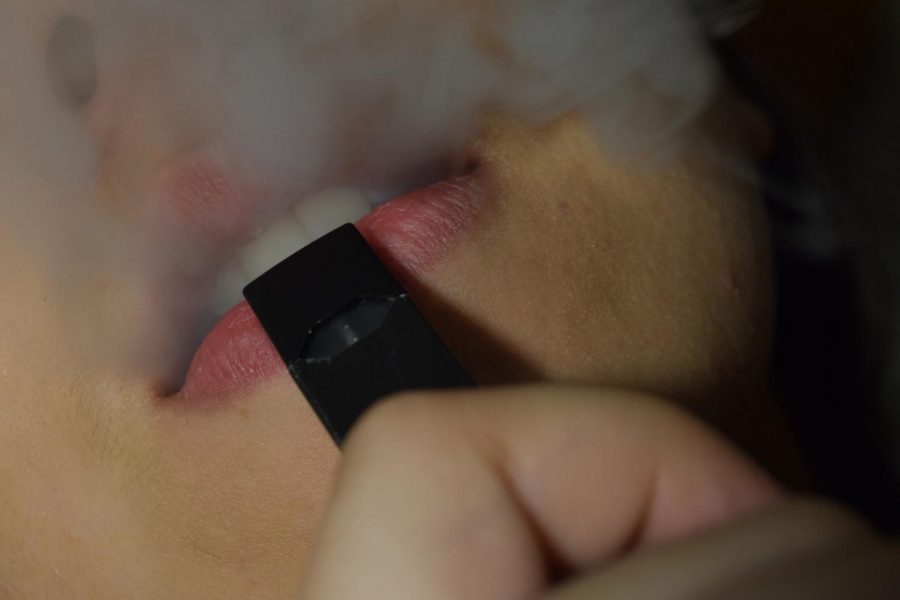Juul needs to take responsibility for harmful products
Predatory cigarette advertisements to children harm future generations, should be more mindful
JOSEPH GARDNER | EVERGREEN PHOTO ILLUSTRATION
Though recent actions undertaken by the FDA have ended many of the practices, vaping advertisements that target children continue to affect the lives of these individuals, the results of which are still unknown.
January 9, 2019
The idea of getting most of the benefits of smoking without the pesky carcinogens and chemicals found in tar appeals to many. This simple idea is the primary driving force behind the meteoric rise in popularity of Juul and other pod-system products.
Juul is one of many products that became successful when they aggressively targeted the hearts and minds of young people around America. Their underhanded advertisements do harm and represent the worst kind of advertising tactics.
This contradicts the audience this product claims to be for: adult addicts trying to quit smoking. Instead, the marketing strategies they use heavily focuses on young people and minors. One such tactic still in use is the creation of different candy-like flavors to appeal to a softer palette.
“These characteristics may facilitate youth use, by making the products more attractive to children and teens,” said the United States Food and Drug Administration in a news event on April 24.
The FDA conducted an extensive audit of convenience stores as well as handed out thousands of warnings and fines to stores selling these products to minors. This was all to crack down on the dangerous amount of minors and teens using these nicotine products. Despite this, nicotine use by minors is already at an epidemic scale, according to the FDA.
Young people and children will latch onto whichever ideas and trends are popular among their peers. These companies claim it was inevitable for young people to use their products considering the effect nicotine has on its users. They certainly aren’t dissuading the use of their product for kids — flavors like fruit punch, blue raspberry and cotton candy are still made widely available by companies like Juul.
Juul and other companies designed their products with the intent of youth use. They definitely understand the addictive nature of their products and the return use of their products from addiction. If it wasn’t for the FDA taking measures to make these products less appealing, there would be much larger repercussions.
New regulations for shifting advertising toward adult smokers rather than the youth change this, but the fact a government agency had to regulate almost the entire marketing strategy of Juul is very saddening for the future of our children.
Juul products make up 29 percent of the nicotine delivery market with sales of pod systems, according to a research letter published in the Journal of the American Medical Association.
The electronic cigarette market is new and very competitive. For the most part these companies will use as many predatory schemes and strategies as they can to squeeze as much profit as they can from the most vulnerable groups. But bringing young people into this competition will only hurt society in general.
To target minors is strictly wrong and Juul must take steps to reverse the damages they — and vaping as a whole — have caused.
Juul, as a major percentage of the market, should spearhead this change to set a precedent for the rest of the market. Vaping is dangerous in ways we barely understand. It is essential that we keep the country’s youth away from such dangers.
These products should support alleviating addiction, not creating it.










John Stevens • Jan 10, 2019 at 5:08 pm
Great work Amar, the style has regressed but the content has improved keep it up!